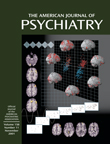To the Editor: While reading the article by Dilip V. Jeste, M.D.
(1), and its associated review and case study, it struck me that one group that can play a greater role in the treatment of the elderly are those of us “shrinks” who must acknowledge that the appellation “geriatric” fits us!
Fortunately, all of my vital organs work quite well, but I have suffered grievous bodily insults as my bones, joints, and muscles fall apart and need repair and replacement. These bodily insults have been most difficult for me to accept gracefully, but it helps me to identify with those who are really impaired, either physically or mentally. The challenge I see for aging psychiatrists is how to continuously expand our knowledge base and retain enthusiasm in our practices.
We have to acknowledge that we are survivors and deal with the losses we have endured. I am fortunate. My wife, children, and grandchildren are all active, loving, caring people who give me much support and sustenance. Like everyone else, I have dear friends and relatives who are no longer with us and some—who I think are even more unfortunate—who are disabled and nonfunctional. As I pondered the changes in my practice, thinking of dear colleagues who no longer refer patients to me because they have bitten the dust, I realized that I miss their camaraderie even more than the patients they used to entrust to my care.
Providing education and knowledge may be the easier task. Digesting multiple ponderous texts is no longer my thing. However, I can deal reasonably well with bits and pieces, especially if the overly technical language is translated into terms I can comprehend. This issue of the Journal, with its editorial, major article, and case report, is a paradigm of what we need. I urge the editors to consider including in each issue an article on clinically relevant geriatric material. Our association could have an ongoing section at its meetings focusing on clinically relevant geriatric topics. It is hoped that APA can design related curricula that could be used at district branch meetings. I am passing along a copy of this missive to our district branch’s chairperson of continuing education.
Ironically, in today’s crazy world of uncaring mismanagement, the elderly have the only system that provides continuity of care. Once having chosen a psychiatrist, a person does not have to worry whom “the book” will allow him or her to see next week. This is the only group of individuals, except for the few who are well-heeled, whose circumstances allow a longstanding, productive, therapeutic relationship. Daily I see Medicare patients who have an acute problem that was resolved with the aid of “medical management” and/or therapy who continue to work through significant psychiatric problems. I hope that my chronological psychiatric peers and I continue to learn, grow, and treat with zest the assorted woes that we will find in DSM-XXI.

